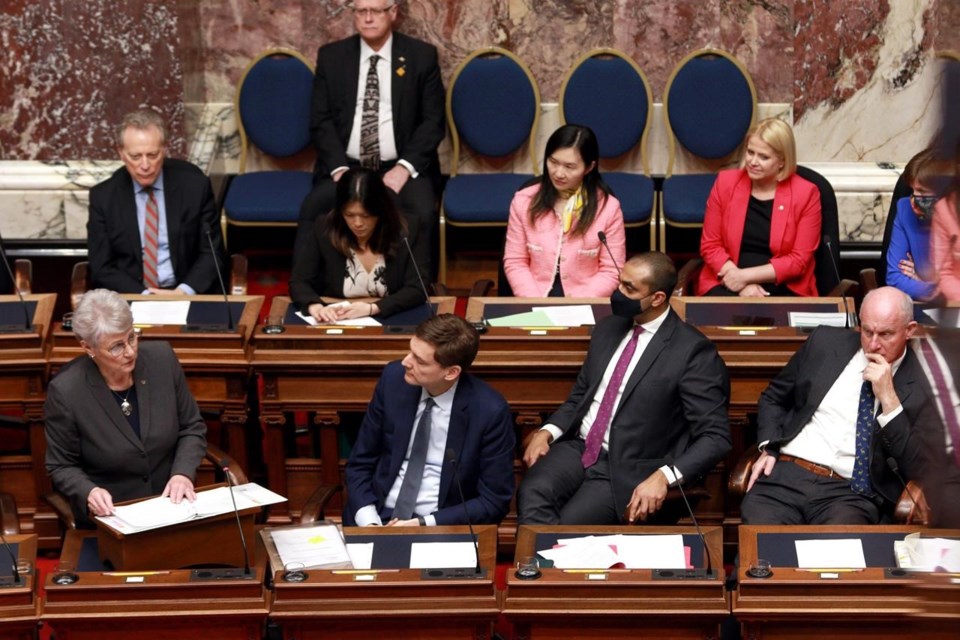VICTORIA — British Columbia Finance Minister Katrine Conroy says this year's budget marks the largest investment in mental health and addictions services in provincial history.
The B.C. government is pumping $867 million into services for mental health and addictions over three years that will increase the number of recovery and treatment beds in what Conroy says is part of a "new model" to care for those with addiction issues.
Conroy says the funding will allow for those with mental health and addiction issues to receive "seamless care" on the road to recovery after detoxing and treatment.
The government will expand the treatment model at Coquitlam's Red Fish Healing Centre — the former site of the shuttered Riverview Hospital — across the province, which Conroy says aims to break the "cycle of evictions, shelters, emergency rooms and jails for those struggling with mental-health and addictions."
Sarah Blythe with the Overdose Prevention Society says she's hopeful that the investments announced will make an impact for people on Vancouver's Downtown Eastside.
She says she would like the investments in mental health and addictions services to help stem the tide of death that has swept the neighbourhood and continues day by day.
"I can only have hope or else it would just be total despair with the amount of people who've died," she says. "So, there's just only room for hoping that we just continue to help people and put an end to this situation we're in right now."
Blythe says the overdose crisis is ongoing, and drug users still need access to safe supply and detox on demand, while lack of housing remains a massive barrier to getting people off the streets and off harmful drugs.
"Getting people into normal circumstances with jobs and housing and everything else really improves the situation," she says. "We see up to from 700, sometimes even 900 people a day at our overdose prevention site. So, we'd like to be able to get people into housing. It's terrible at the end of the day when we have to close down and people have to go sleep in the tent in the rain."
This report by The Canadian Press was first published Feb. 28, 2023.
The Canadian Press


